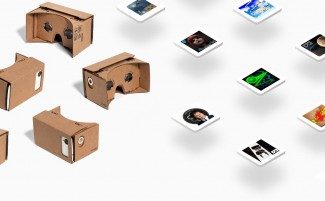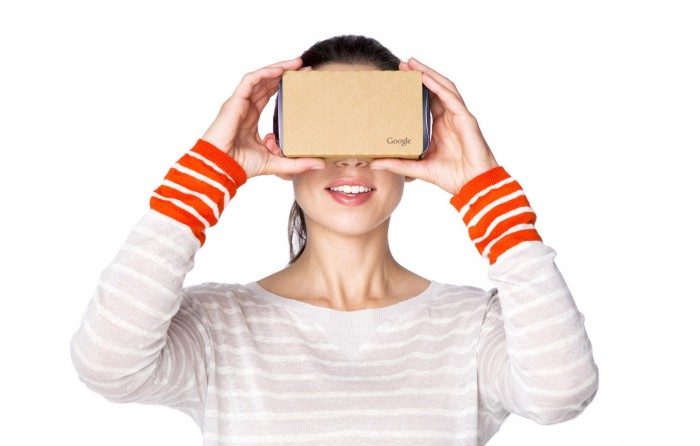Late last month we spotted Google job postings that heavily pointed toward the company developing its own high-end mobile VR headset. Now a new report from Financial Times indicates the company plans to launch the headset this year.
Google’s Cardboard initiative offers a cheap way for users of even dated smartphones to experience an entry-level VR experience by relying entirely on the smartphone for processing, sensing, control, and display. But Samsung’s Gear VR headset sets the bar much higher thanks to on-board hardware and special cooperation between the headset and the phone, putting Gear VR in another league entirely.
Now it seems that Google wants to make a competing device, and they could launch it this year, according to Financial Times [paywall], who cite “people familiar with [Google’s] plans.”
Supporting much of what we surmised from the earlier job postings, the Financial Times report describes a Gear VR competitor:
The new headset will be a successor to Cardboard. the cheap-and-cheerful mobile VR viewer that Google launched in 2014, and feature better sensors, lenses and a more solid plastic casing… Google is expected to release its rival headset, alongside new Android VR technology, this year. Like Cardboard and Gear VR, the new headset will use an existing smartphone, slotted into the device, for its display and most of its processing power.
The report further indicates that the headset would be compatible with a wider range of smartphones than Gear VR, which is currently limited to five of Samsung’s phones (depending upon which of the three versions of the headset you own).
See Also: Apple’s Latest VR Hire is Top Researcher Doug Bowman
That makes sense to leverage Android’s huge range of handsets and partners, but it remains to be seen how inclusive such a device could be; a quality VR experience is perhaps the most processor-demanding activity a smartphone can undertake, and an OLED display is necessary for ‘low-persistence’, an important technique which significantly reduces blurriness for a sharper and more comfortable experience.

The Financial Times report indicates the headset will launch alongside “new Android VR technology.” We suggested previously that Google may develop the VR headset as a Nexus device, their flagship brand which cooperates with prominent hardware partners on high-end Android devices. The headset may come alongside a new compatible phone and VR-ready version of the Android operating system. This could lay the foundation for other Android hardware partners to create compatible phones for the headset, or perhaps open the door for an entire Android VR headset ecosystem, just like we see with Android handsets.
The launch of a Google VR headset will put the company in a curious position with Samsung, who is of course a major player in the Android smartphone ecosystem and has collaborated with Google to produce Nexus devices in the past. A new Google VR headset could potentially be compatible with Samsung’s Gear VR-compatible smartphones, or it could exclude them; either way, the platform politics are likely to get awkward fast, especially with prominent Google products like YouTube still missing from Gear VR.








